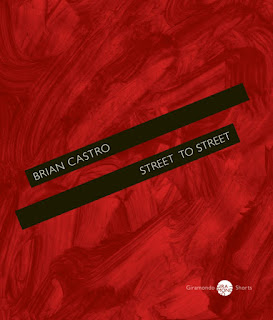Street to Street
Brian Castro’s Street to Street felt like a novel meant for me to read. This might sound like a very egotistical thing to say, but what I mean is that I sense that I am well equipped – by virtue of my particular background and sympathies – to appreciate its virtues and I think its purposes. Castro is quite a busy author and I have read only a few of his books: Double-Wolf (1991), The Garden Book (2005), and The Bath Fugues (2009). He is a writer drawn to writing about artists and outsiders, and in Street to Street, he finds his subject in the dual narrative of that Sydney, belated Romantic poet Christopher Brennan, and a (beautifully) flawed academic and would-be Brennan biographer, Brendan Costa. In order to manage the ending, a more shadowy friend-of-Costa makes an occasional narrative appearance (and I think is a less successful voice than Costa).
One of Castro’s principal sources for Brennan’s life is Axel Clark’s Christopher Brennan – A Critical
Biography (1980). Some years ago, I picked up a second hand edition of this
text in the markets in Roselle, and have at least half read it, enough to understand
a little more of the troubled romantic life of Sydney’s (almost) famous poet.
Of his narrator, I must reveal that I feel like I know him as a type: he is a
solitary man; drawn to old-fashioned notions of scholarship (and in conflict,
like Brennan before him, with university authorities as a result). I am part-way
in writing my own novel with a flawed researcher, who like Costa, resides in
the Blue Mountains town of Blackheath, and for this alone I feel like I am a
reader and a writer with many intellectual sympathies to Brian Castro (elder statesman
and famous writer that he is!). In no particular order, and by no means doing
justice to Castro or this novel, these include: the struggle of the
writer/poet/artist to create in a ‘provincial’ setting; the nature of
biographical research and the doubling of the life of the biographer and
his/her subject; an ironic view of self and of male characters and their
struggle to form relationships with their own sex and with their devastating opposite.
To take just a few sentences from the novel to illustrate how these notions
might come together, Costa is thinking about Brennan’s affair with the bohemian
Vie, and his self-doubt as a writer:
She was all hunger and astonishment. She crossed the borders;
her spit and polish; he was liberated, was a man again. For months after, he
scarcely thought about his own anachronism as a poet, the way he was being left
behind by those in Europe and Britain, the bankers and the publishers. They had
renounced subjectivity for something modern and he was holding back barbarism
(pp.99-100).
So, Castro shows a poet’s self-doubt and his hopefulness
together in the arms of a lover; Costa, meanwhile, has begun to reimagine
himself away from university life, after a Dutch woman takes him seriously (and
his loveless Australian marriage dissolves). There is something here about the
struggle for authenticity, in other words, of self and as artists, and the
relationship between Australia and Europe plays out with all the difficulties of
a long-distance relationship, one which remains unequal in terms of power, even
as poets and their biographers bunker down in the Blue Mountains to make sense
of it all. This is another thing I admire and relate to in the novel and in
Castro as writer. I could, perhaps, fear to be a shadow; but I suspect that
Castro must feel that way himself at times, as he, too, sympathises with the
poet Christopher Brennan and brings him to life as only a fellow artist might.




Comments
Post a Comment